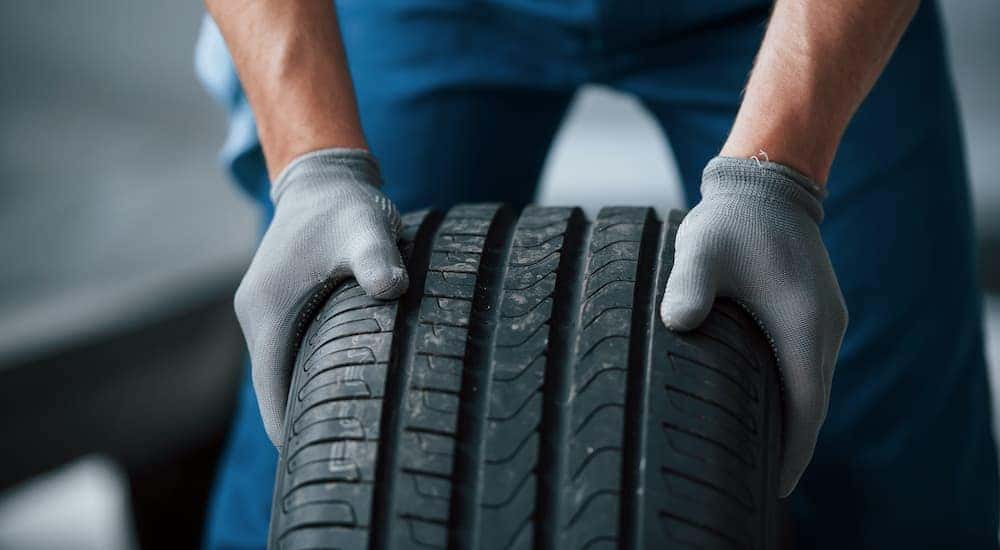Morris Tires: Where GMC Tire Service Meets Top Quality
Morris Tires: Where GMC Tire Service Meets Top Quality
Blog Article
Tire Solution: The Influence of Climate Conditions
When it comes to making certain optimal performance and safety on the road, comprehending the impact of weather conditions on tire solution is crucial. From scorching warmth to icy roads, each weather component can dramatically affect tire performance and total driving experience. By diving right into the effects of varying weather on tires, vehicle drivers can acquire valuable insights that might enhance their automobile's efficiency and long life. In this conversation, we will certainly discover the detailed relationship in between climate condition and tire solution, losing light on the value of weather-specific tire upkeep practices and factors to consider.
Heat and Tire Efficiency
When subjected to heats, tires experience changes in performance that can dramatically affect vehicle safety and security and handling. The warmth produced from long term driving or heat problems triggers the tire rubber to soften, bring about minimized walk life and boosted wear. As the rubber comes to be softer, the tire's grasp on the road decreases, influencing braking distances and total traction. In extreme cases, extreme warm can even cause tire blowouts, presenting a serious safety danger to the car and its owners.

Cold Weather Effects
Cold weather condition problems can have a considerable effect on tire performance and safety and security. As temperatures drop, tire rubber can solidify, leading to reduced grip on icy or snow-covered roadways. In winter, tires might also shed atmospheric pressure a lot more quickly, which can impact taking care of and gas efficiency. Additionally, chilly temperatures can create tire sidewalls to stiffen, raising the danger of damage from holes or other roadway threats.
To minimize the impacts of chilly weather on tires, it is essential to on a regular basis inspect tire pressure and inflate them to the maker's advised degrees. Making use of winter or all-season tires created for winter problems can also boost traction and grip on icy or snowy roads. Proper tire maintenance, including normal examinations for wear and damage, becomes a lot more vital during chillier months to make sure ideal performance and safety.
Rainy Conditions Impact
Tires with damaged footsteps are extra susceptible to hydroplaning, where a layer of water builds up in between basics the roadway and the tire surface area, leading to loss of grip. To fight this, vehicle drivers should regularly inspect their tires for appropriate tread deepness and take into consideration spending in tires especially developed for damp conditions.
Moreover, rainy weather can additionally reduce visibility, making it testing for vehicle drivers to see the roadway in advance clearly (GMC Tire Service). In such conditions, it is important to Get More Info adjust driving rates as necessary and preserve a risk-free adhering to distance to permit abrupt quits. Effectively filled with air tires can also assist in keeping control on wet roadways by providing much better handling and hold
Snow and Tire Security
When driving in snowy problems, having the right tires can make a substantial distinction in safety and efficiency. Winter season tires are designed with special rubber substances and tread patterns to provide much better grip on snow and ice compared to all-season tires.

It is essential to adhere to producer guidelines when using and setting up tire chains to protect against damages to the tires and automobile. By choosing the best tires, keeping correct inflation, and taking into consideration added traction help like tire chains, chauffeurs can improve their security when browsing snow-covered roadways.
Weather-Related Tire Upkeep
Weather-related tire upkeep includes a range of practices intended at ensuring optimum tire feature and durability in different weather condition situations. One crucial element of weather-related tire upkeep is tire stress law. Examining tire walk consistently and changing tires when step wear gets to a specific deepness is important for maintaining traction and stability in damaging climate.
Final Thought
In final thought, climate condition have a significant effect on tire performance and security. From warmth affecting tire pressure and put on to winter minimizing traction, it is vital to take into consideration the weather when preserving and using tires. Wet problems can decrease grasp and lead to hydroplaning, while snow can boost the danger of crashes if tires are not effectively geared up. Weather-related tire upkeep is important in making sure optimum performance and security when traveling.
In this discussion, we will discover the detailed relationship in between weather conditions and tire service, my sources losing light on the value of weather-specific tire upkeep practices and considerations.

Report this page